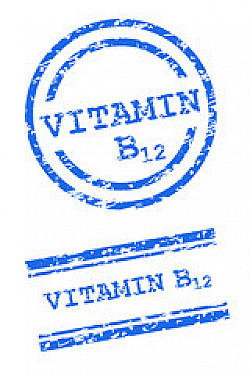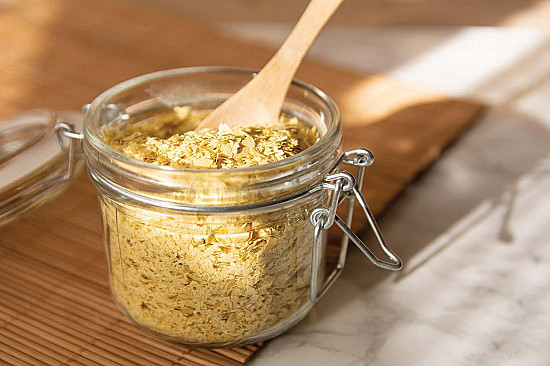Soup up your diet
A hearty bowl of soup can provide plenty of nutrient-rich beans, vegetables, and grains in a single meal.
- Reviewed by Christopher P. Cannon, MD, Editor in Chief, Harvard Heart Letter; Editorial Advisory Board Member, Harvard Health Publishing

A steaming bowl of soup can warm you up on a chilly winter day — and fill you up with heart-protecting nutrients. "During the colder months, I love to make one-pot meals, like a hearty soup with beans," says registered dietitian Kathy McManus, director of the Department of Nutrition at Harvard-affiliated Brigham and Women's Hospital. Beans come in many different varieties and contain soluble fiber, which helps lower cholesterol, she adds. What's more, dried and canned beans are readily available and inexpensive, and they have a long shelf life.
You can also load up your soup with seasonal vegetables, including cabbage, carrots, beets, acorn or butternut squash, and sturdy greens like kale, chard, and collards. Add some whole grains — such as barley, farro, or quinoa — and you'll have achieved the trifecta of a balanced plant-based meal. "When you include beans, hearty vegetables, and whole grains, the fiber content really adds up. All that fiber fills you up without adding excessive calories," says McManus.
Another advantage: Making a big pot of soup gives you plenty of leftovers, which will stay fresh in the refrigerator for three to four days. Or you can freeze single-serving portions. Try the recipe at right (see "An easy, adaptable soup recipe") or one of the recipes at Brigham and Women's website, which all take less than 30 minutes to prepare. "They're all low in saturated fat, have modest amounts of sodium, are a good source of fiber, and taste great!" says McManus.
Choosing store-bought soups
For those times you're not in the mood to cook, keep some canned or boxed soups on hand. Look for brands that contain less than 400 milligrams (mg) of sodium per serving, McManus suggests. Most adults should limit their daily sodium intake to less than 2,300 mg per day, according to the Dietary Guidelines for Americans. Eating too much sodium contributes to high blood pressure, and a salty diet can sabotage the effects of blood pressure drugs.
An easy, adaptable soup recipeHere's an easy recipe you can customize to your taste and what you have on hand in your fridge and pantry. Swap in different vegetables — such as zucchini, turnips, broccoli, or bell peppers — for the carrots or green beans. Instead of potatoes, try a whole-grain pasta, barley, quinoa, or brown or wild rice. To include some protein in the meal, toss in some cubed tofu, precooked beans, or cooked, diced turkey or chicken. Ingredients: 1 tablespoon olive oil 3 medium leeks, sliced 1 clove garlic, minced pinch of salt 2 medium carrots, chopped 2 cups cut (3/4-inch) green beans 2 potatoes, cubed 8 ounces low-sodium vegetable broth 4 cups chopped tomatoes, with their juice 1 cup corn Preparation: Heat the olive oil in a stock pot. Toss in the leeks, garlic, and salt and saut' over medium-high heat for five to six minutes. Add the carrots, green beans, and potatoes. Cook for an additional four to five minutes, stirring frequently. Add the low-sodium vegetable broth and bring to a simmer. Stir in the tomatoes and corn. Cook for an additional five minutes. Adjust the seasoning as desired. |
Sniffing out sodium
Be sure to check the Nutrition Facts panel on the back label rather than relying on the claim on the front of the package. Some soup labels say "reduced sodium" or "less sodium." However, that means the sodium level has been reduced by 25% compared to the original product. So if the sodium started high (750 mg), it can still be a high-sodium item with 560 mg of sodium. And beware of the soups featured at popular restaurant chains, which are notoriously high in sodium. A cup of Panera's broccoli cheddar soup has 980 mg of sodium; a cup of Olive Garden's minestrone has 810 mg.
Image: © chabybucko/Getty Images
About the Author

Julie Corliss, Executive Editor, Harvard Heart Letter
About the Reviewer

Christopher P. Cannon, MD, Editor in Chief, Harvard Heart Letter; Editorial Advisory Board Member, Harvard Health Publishing
Disclaimer:
As a service to our readers, Harvard Health Publishing provides access to our library of archived content. Please note the date of last review or update on all articles.
No content on this site, regardless of date, should ever be used as a substitute for direct medical advice from your doctor or other qualified clinician.
















